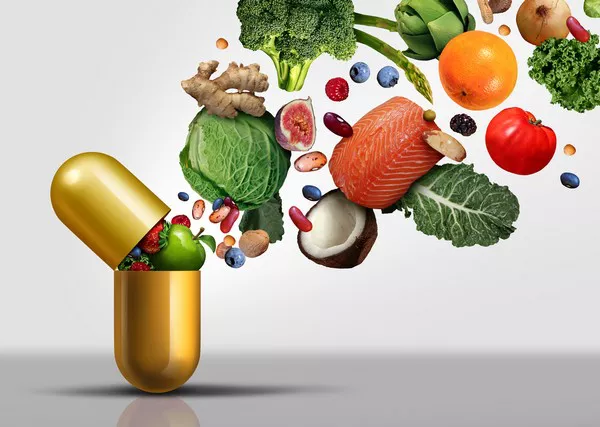Potassium is a vital mineral that plays a crucial role in maintaining various bodily functions. While many people associate it with bananas, its importance goes far beyond that. In this article, we’ll explore the significance of potassium, its functions in the body, dietary sources, recommended intake, potential health benefits, and the risks of both deficiency and excess. By the end, you’ll have a comprehensive understanding of why potassium is essential for your overall well-being.
The Role of Potassium in the Body
Functions of Potassium: Potassium is an electrolyte, meaning it carries an electric charge in the body. It’s primarily found within cells and plays a vital role in maintaining fluid balance, nerve transmission, and muscle contractions. This mineral also helps regulate heart rhythm, supports kidney function, and contributes to maintaining healthy blood pressure levels.
Dietary Sources of Potassium: While bananas are often associated with potassium, there are various other sources rich in this mineral. Avocados, spinach, sweet potatoes, and white beans are excellent sources of potassium. Additionally, dairy products, fish, and lean meats also contribute to your potassium intake.
Recommended Intake and Health Benefits
Recommended Daily Intake: The recommended daily intake of potassium varies by age and gender. For adults, the general guideline is around 2,500 to 3,400 milligrams per day. However, individual needs may vary based on factors such as physical activity, medical conditions, and medications.
Heart Health: Adequate potassium intake has been linked to heart health. Potassium helps regulate blood pressure by counteracting the effects of sodium, a mineral that can elevate blood pressure. Including potassium-rich foods in your diet may help support cardiovascular health.
Muscle Function: Potassium is essential for proper muscle function, including both voluntary muscles (like skeletal muscles) and involuntary muscles (like the heart). It aids in transmitting electrical signals that trigger muscle contractions, making it crucial for activities ranging from walking to maintaining a steady heartbeat.
Bone Health: Some studies suggest that a diet rich in potassium may have positive effects on bone health. Potassium is believed to help maintain a balanced pH level in the body, potentially reducing the loss of calcium from bones and promoting overall bone density.
The Risks of Potassium Imbalance
Potassium Deficiency: Insufficient potassium intake can lead to hypokalemia, a condition characterized by low levels of potassium in the blood. Symptoms may include muscle weakness, fatigue, irregular heartbeat, and even paralysis in severe cases. Certain medical conditions, such as kidney disorders and gastrointestinal issues, can increase the risk of potassium deficiency.
Excess Potassium: Hyperkalemia is the opposite end of the spectrum, where potassium levels in the blood are too high. This can be caused by kidney problems, certain medications, or excessive supplementation. Hyperkalemia can lead to heart rhythm disturbances, muscle weakness, and, in extreme cases, cardiac arrest.
Balancing Your Potassium Intake
Dietary Considerations: Achieving a healthy balance of potassium involves incorporating a variety of potassium-rich foods into your diet. Fruits like oranges, cantaloupes, and apricots, as well as vegetables such as broccoli and potatoes, are great choices. However, individuals with kidney problems may need to monitor their potassium intake more closely, as impaired kidney function can affect potassium regulation.
Fluid Intake: Staying hydrated is essential for maintaining potassium balance. When you’re dehydrated, potassium levels in the blood can become more concentrated, potentially leading to imbalances. Aim to drink enough water throughout the day to support optimal electrolyte balance.
See Also: A Comprehensive Exploration of Vitamins & Minerals
Conclusion
Potassium is an essential mineral that plays a pivotal role in maintaining various bodily functions. From heart health to muscle function, it’s a key player in ensuring your body operates at its best. While its association with bananas is well-known, remember that there are many other sources of potassium-rich foods that can contribute to meeting your daily requirements. Striking the right balance of potassium intake is crucial for promoting overall health and preventing imbalances that could lead to potential health risks. Always consult with a healthcare professional before making significant changes to your diet, especially if you have underlying medical conditions.


